Brilliance All Around: Yale Rep, School of Drama’s Dwight/Edgewood Project
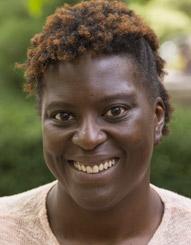 Dwight/Edgewood Project Coordinator Emalie Mayo likes to think of brilliance as shine, like the brilliant shine of a diamond.
Dwight/Edgewood Project Coordinator Emalie Mayo likes to think of brilliance as shine, like the brilliant shine of a diamond.
Emalie adopted this concept from one of the graduate students working as a mentor in the Dwight/Edgewood Project, which works with middle-school-aged children from Barnard Environmental Studies Magnet School to write scripts, produce plays, and put on a show.
“The drama student mentor said her goal was to help playwrights find their shine,” Emalie noted, reflecting on the brilliance in her department, “and we kind of drove home the fact that we should all support each other in finding our own shine. Yes, we’re all smart in our own ways, but we can also define what that shine is, and that’s what we hope these playwrights do.”
The Project, which is a joint initiative between both Yale Repertory Theater and the Yale School of Drama, was conceptualized in 1995 by Yale School of Drama Deputy Dean Victoria Nolan.
Recently, Emalie was one of 65 staff members who shared, in an It’s Your Yale questionnaire, the brilliant contributions that she and her team make to support Yale’s mission.
She is the senior administrative assistant to the assistant dean and deputy dean in the Theater Management Department at Yale’s School of Drama. Each year, when the Project picks up again in mid-May, Emalie takes on the role of coordinator.
She has a teaching background so when the opportunity came for her to take over the coordination when there was a reorganization of the department, she “jumped at the chance.”
This year was Emalie’s fourth round of coordinating the project. Another push for her to take on the role was the fact that the theater program focuses on playwrighting.
“You don’t see children’s programs at theaters that are about the writing of a play,” Emalie said. “It’s always acting or voice or dance; this is unique because it’s playwrighting.”
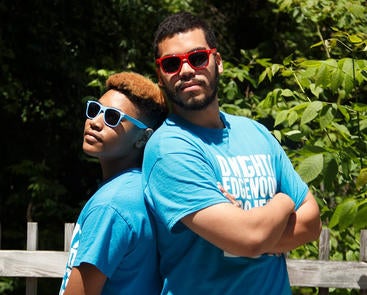 The program is a packed four weeks of one-on-one training by professional graduate students who work as mentors. Emalie is often told that the program is the graduate students’ favorite part of their last three years at Yale, despite their having to balance more responsibilities.
The program is a packed four weeks of one-on-one training by professional graduate students who work as mentors. Emalie is often told that the program is the graduate students’ favorite part of their last three years at Yale, despite their having to balance more responsibilities.
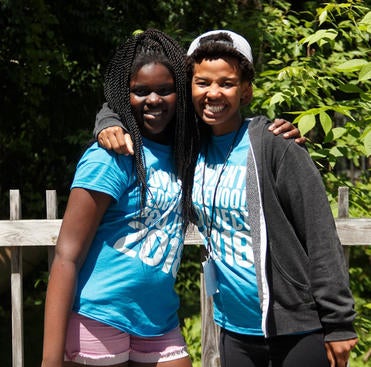 The children are in sixth and seventh grades. Being a middle schooler can be hard and frustrating, Emalie noted, but her young playwrights are like sponges that soak up everything. At times, that can also mean they absorb the difficult aspects of their own environments.
The children are in sixth and seventh grades. Being a middle schooler can be hard and frustrating, Emalie noted, but her young playwrights are like sponges that soak up everything. At times, that can also mean they absorb the difficult aspects of their own environments.
When the playwrights begin writing their plays, they are encouraged by program staff to think outside of the box, outside of their circumstances or images they have seen elsewhere.
That’s usually the starting point of their plays, imagining that there is a world where there aren’t any humans. The product: plays with aliens, talking fruit, and animals.
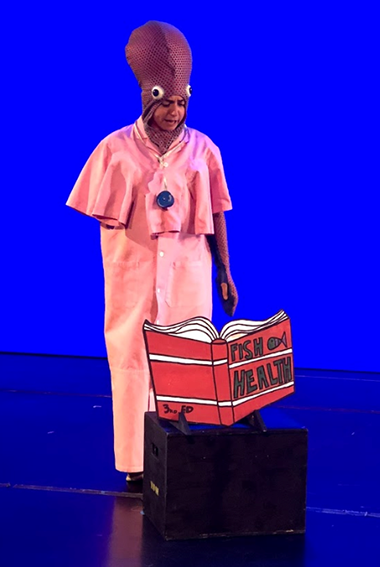 “We want them to steer away from people in their lives or stuff they’ve seen on TV,” Emalie said. “We really want them to focus on what can happen if a banana met a mouse and just dive into that – dive into their imaginations and remind them that their imaginations are limitless.”
“We want them to steer away from people in their lives or stuff they’ve seen on TV,” Emalie said. “We really want them to focus on what can happen if a banana met a mouse and just dive into that – dive into their imaginations and remind them that their imaginations are limitless.”
Since Barnard is a school whose mission is to develop a passion for environmental stewardship in its students, playwrights often conjure up tales in forests or about water and sea creatures.
One of the most rewarding aspects of Emalie’s job is being able to see the playwrights transform through the ownership of their art.
“We see shy kids come in on day one and on day 21 they’re up on the stage giving directions,” she said. “To watch that progression is astonishing every year.”
The ownership that often empowers these students is established by respecting their creative decisions.
“We don’t change any of their words,” she said. “We respect everything they say during rehearsal down to the lights and costumes to the sounds they want to hear; that’s very rare.”
The Project is a good way to create bridges in the community, and to become a good neighbor according to Emalie. It’s one way to counter certain sentiments that some New Haven residents may have about Yale.
“Yale isn’t this fortress where anything is intangible,” she said. “It is attainable; it’s achievable. You can be here, and we’ll celebrate the fact that you’re here.”
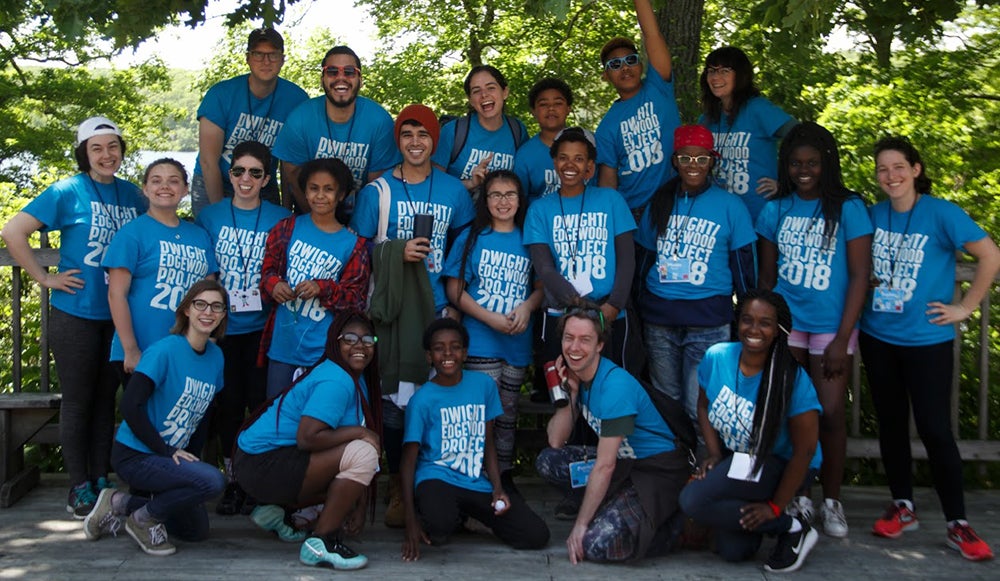
Written by Melanie Espinal, New Haven Promise intern 2018
Photos courtesy of the Dwight/Edgewood Project


